How do you Write Beginnings?
22 posts •
Page 1 of 1
How do you Write Beginnings?
I've had quite a bit of trouble writing the beginning of a story. I've written essentially nothing because I spend all of my time rewriting the beginning. I do know that the beginning is the most important part of a story, as that's the part that draws people in, but how does one accomplish the task of getting a potential reader's attention? What makes for good reading when it comes to the very start of a story? What are things to avoid and what are things to include? Any advice is welcome. Thank you.
"For I am convinced that neither death nor life, neither angels nor demons, neither the present nor the future, nor any powers, neither height nor depth, nor anything else in all creation, will be able to separate us from the love of God that is in Christ Jesus our Lord." [SIZE="2"]Romans 8:38-39 (NIV)[/SIZE]
-
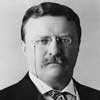
OfficerSting - Posts: 52
- Joined: Fri Apr 16, 2010 7:07 pm
I've written essentially nothing because I spend all of my time rewriting the beginning.
Okay, first of all, you need to break through the urge to edit the beginning before you've written the middle and ending. Finishing those may affect how you ultimately decide to shape your beginning. So, no matter how unhappy you are with the beginning, don't fixate on it while drafting. There will be time to fix it later, but that time is not now.
The best advice I can give you is to go to your bookshelf, or library, or nearest bookstore and start reading the first paragraph/page of books. Example is the best way to learn, better than abstract advice in many cases. So read and start paying attention to how other authors begin their stories. Analyze why their introduction caught (or didn't catch) your interest. Analyze how they structure information and make it flow. Then try to mimic their methods. Good luck.
-
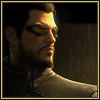
Esoteric - Posts: 1603
- Joined: Sun Aug 22, 2004 1:12 pm
- Location: The Lost Room.
Exactly. Just get writing, and then go back to edit. Or, if you really want to avoid writing the beginning until you have some time, just skip ahead as far as you need to, then go back to it.

-

Ante Bellum - Posts: 1347
- Joined: Tue Apr 07, 2009 2:59 pm
- Location: E U R O B E A T H E L L
Esoteric (post: 1396405) wrote:...go to your bookshelf, or library, or nearest bookstore and start reading the first paragraph/page of books.
I am no author or anything like that, but I can imagine that there are a lot of "it was a dark and stormy night" beginnings in library books, so if I can just add one little emendation to that suggestion, I would say try to look for the classics in particular (like Charles Dickens) and learn from the greats.
[SIZE="1"]disclaimer: I've written one very poor story so I am by no means an authority on the subject.
 [/SIZE]
[/SIZE]Deo Volente Deo non Fortuna
-
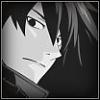
Alcuinus - Posts: 152
- Joined: Mon Mar 08, 2010 12:12 pm
- Location: Midwestern US
Every article I've read about craft has emphasized the importance of the first sentence. A compelling first sentence is a great way to hook readers immediately. As tempting as it might be to start your story with your character waking up in the morning and getting ready, avoid it unless the morning routine is really that important. What tends to work for me is just going the whole in medias res route, which means starting the story in the middle of the action.
Take a look at plays, for instance. A play usually intrudes on the characters' lives at the start. The audience is usually finding them in the middle of something and doesn't necessarily see how the situation came to be. They might find out sometime later, but not immediately.
Of course, in medias res is not the end all be all of story beginnings. Harry Potter could have easily begun with the scene where Voldemort killed Harry's parents and gave him the scar, but Rowling chose a different route and it ended up working well.
Sometimes when it comes to drafting stuff, you just need to start out writing bad beginnings. I've also started over a million times on things, but that's also because I'm learning how to only tell what's necessary. This has helped me involve my characters more in the plot and create more interesting starting points. I'd suggest reading shorter books to get a sense of how a story can be epic and still be under 200 pages long.
Take a look at plays, for instance. A play usually intrudes on the characters' lives at the start. The audience is usually finding them in the middle of something and doesn't necessarily see how the situation came to be. They might find out sometime later, but not immediately.
Of course, in medias res is not the end all be all of story beginnings. Harry Potter could have easily begun with the scene where Voldemort killed Harry's parents and gave him the scar, but Rowling chose a different route and it ended up working well.
Sometimes when it comes to drafting stuff, you just need to start out writing bad beginnings. I've also started over a million times on things, but that's also because I'm learning how to only tell what's necessary. This has helped me involve my characters more in the plot and create more interesting starting points. I'd suggest reading shorter books to get a sense of how a story can be epic and still be under 200 pages long.
Fanfiction (updated 1/1/11)-- Lucky Star--Ginsaki ch. 4
[color="Magenta"]Sometimes I post things.[/color]

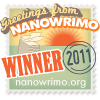

[color="Magenta"]Sometimes I post things.[/color]



-

LadyRushia - Posts: 3075
- Joined: Mon Aug 06, 2007 8:38 pm
- Location: In a dorm room/a house.
I second Rushia with the in medias res. Come to think of it, all my stories start well advanced into the chronological thread of events, but the characters often have no idea just how far back things go.
I got over my latest beginning block by fabricating an event that would give readers a chance to see the basic behaviour of the main.
GL! n.n
I got over my latest beginning block by fabricating an event that would give readers a chance to see the basic behaviour of the main.
GL! n.n
Proverbs 31:32 "...when she watches anime, she keeps the room well lit and sits at a safe distance."
-

Rusty Claymore - Posts: 1258
- Joined: Sun Jan 03, 2010 2:18 pm
- Location: Alaska
Yeah, actually, that does remind me. So far I've started out my story at one scene as a prologue, but the actual beginning starts before then and eventually catches up and passes it. So, it could highlight an important plot point or event in the story as well.

-

Ante Bellum - Posts: 1347
- Joined: Tue Apr 07, 2009 2:59 pm
- Location: E U R O B E A T H E L L
Definitely resist that urge to edit before you move forward. It'll kill a story dead faster than anything else. Press on!
fightin' in the eighties
-

ShiroiHikari - Posts: 7564
- Joined: Wed May 28, 2003 12:00 pm
- Location: Somewhere between 1983 and 1989
This is what I've heard:
"Do you know what the single most important part of the story is? The last sentence."
"What about the second most important? It's the first sentence"
Wow! Tall order. I have the same problem as you. I tend to do what AnteBellum suggested, I skip ahead and start writing a scene in the middle of the story, because I know that I will have to fix the beginning later on anyway, so why waste time agonizing over how it sounds *now* when I don't even have the body of the story which it can stand on? If the quote I stated at the beginning holds true then the beginning of the story is very tricky to write indeed. I like to write my beginnings with this criteria:
1) A sufficient reflection or foreshadowing of what is to come. Or presents the overarching theme of the story in general even somewhat vague terms.
2) Sets a feeling/tone that is generally applicable to the entire story, not just the beginning
3) Even though the beginning might seem inconsequential, when reading the very last sentence of the story and then going back to the first sentence, we see it's implications to the story's message in full specificity.
I hope that wasn't all vague or something. I agree with Lady Rushia, that you should just write out the bad beginnings just so you know what things worked or that you liked which you can incorporate in the final draft and which didn't work and that need to be thrown out.
"Do you know what the single most important part of the story is? The last sentence."
"What about the second most important? It's the first sentence"
Wow! Tall order. I have the same problem as you. I tend to do what AnteBellum suggested, I skip ahead and start writing a scene in the middle of the story, because I know that I will have to fix the beginning later on anyway, so why waste time agonizing over how it sounds *now* when I don't even have the body of the story which it can stand on? If the quote I stated at the beginning holds true then the beginning of the story is very tricky to write indeed. I like to write my beginnings with this criteria:
1) A sufficient reflection or foreshadowing of what is to come. Or presents the overarching theme of the story in general even somewhat vague terms.
2) Sets a feeling/tone that is generally applicable to the entire story, not just the beginning
3) Even though the beginning might seem inconsequential, when reading the very last sentence of the story and then going back to the first sentence, we see it's implications to the story's message in full specificity.
I hope that wasn't all vague or something. I agree with Lady Rushia, that you should just write out the bad beginnings just so you know what things worked or that you liked which you can incorporate in the final draft and which didn't work and that need to be thrown out.
-

Adorima - Posts: 123
- Joined: Tue Oct 16, 2007 9:32 pm
- Location: USA
"The sky above the port was the color of television, tuned to a dead channel." (Neuromancer)
"I always get the shakes before a drop." (Starship Troopers)
"The Deliverator belongs to an elite order, a hallowed sub-category." (Snow Crash)
"In the week before their departure to Arrakis, when all the final scurrying about had reached a nearly unbearable frenzy, an old crone came to visit the mother of the boy, Paul." (Dune)
"It was starting to end, after what seemed most of eternity to me." (Nine Princes in Amber)
"The drought had lasted now for ten million years, and the reign of the terrible lizards had long since ended." (2001)
"All this happened, more or less." (Slaughterhouse Five)
What is common to all of these great opening sentences is:
1. There is not a weak sentence among them.
2. They completely set the stage and tone for the story that is about to unfold in the pages that follow immediately. From the desperate struggle to survive in Chiba City (Neuromancer), to the stress of combat (Starship Troopers), to the unconventional mixing of history and fantasy (Slaughterhouse Five), the opening sentence "eases the reader" into the suspension of disbelief and encourages them to read on. "Tell me about the old crone."
So, my advice:
Don't worry about the opening sentence at first. Write the first few paragraphs. Outline the rest of the story. Get the "feel" of the plot, the characters, their motivations, the background. Then go back and work on the opening.
Now, this flies in the face of advice from some professionals like Dean R. Koontz, king of the Mass Market Paperback, who would actually have you start with a Good Title, or, barring that, an Opening Sentence that gets your creative thinking going. Not sure that I'm really into that, but then again he's sold millions of copies of his novels, so who am I to question it?
My most successful piece of fiction to date opened with the following:
"Uso da."
That's Japanese for "That's a lie" or "Not true".
What's a lie? What's not true?
Well, if you're really interested, you'll have to ask to find out...
"I always get the shakes before a drop." (Starship Troopers)
"The Deliverator belongs to an elite order, a hallowed sub-category." (Snow Crash)
"In the week before their departure to Arrakis, when all the final scurrying about had reached a nearly unbearable frenzy, an old crone came to visit the mother of the boy, Paul." (Dune)
"It was starting to end, after what seemed most of eternity to me." (Nine Princes in Amber)
"The drought had lasted now for ten million years, and the reign of the terrible lizards had long since ended." (2001)
"All this happened, more or less." (Slaughterhouse Five)
What is common to all of these great opening sentences is:
1. There is not a weak sentence among them.
2. They completely set the stage and tone for the story that is about to unfold in the pages that follow immediately. From the desperate struggle to survive in Chiba City (Neuromancer), to the stress of combat (Starship Troopers), to the unconventional mixing of history and fantasy (Slaughterhouse Five), the opening sentence "eases the reader" into the suspension of disbelief and encourages them to read on. "Tell me about the old crone."
So, my advice:
Don't worry about the opening sentence at first. Write the first few paragraphs. Outline the rest of the story. Get the "feel" of the plot, the characters, their motivations, the background. Then go back and work on the opening.
Now, this flies in the face of advice from some professionals like Dean R. Koontz, king of the Mass Market Paperback, who would actually have you start with a Good Title, or, barring that, an Opening Sentence that gets your creative thinking going. Not sure that I'm really into that, but then again he's sold millions of copies of his novels, so who am I to question it?
My most successful piece of fiction to date opened with the following:
"Uso da."
That's Japanese for "That's a lie" or "Not true".
What's a lie? What's not true?
Well, if you're really interested, you'll have to ask to find out...

"If I find in myself a desire which no experience in this world can satisfy, the most probable explanation is that I was made for another world." -- C.S. Lewis
-

ClosetOtaku - Posts: 927
- Joined: Tue Jul 06, 2004 3:12 am
- Location: Alexandria, VA
Everyone's right- if you get stuck on the beginning, you'll never write anything else. And how you want the beginning to be can and will change as you write the story. Don't get stuck on it- stick with what you have, and when you finish your draft, change it as you see fit.
Remember (even though you might not be going for publishing), editors make writers do dozens and dozens of revisions to their work, often going through six or seven rewrites. It probably won't be perfect on the first or second draft, but you can always go back and change things!
Remember (even though you might not be going for publishing), editors make writers do dozens and dozens of revisions to their work, often going through six or seven rewrites. It probably won't be perfect on the first or second draft, but you can always go back and change things!
-
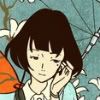
Atria35 - Posts: 6295
- Joined: Sat Mar 20, 2010 7:30 am
[Quote="Dean R. Koontz"]"Every category [of] novel [e.g. Sci-Fi, Mystery, Suspense, Western, etc.] must hook the reader's attention in the first paragraph and, if possible, in the very first sentence. It must provoke in him an immediate 'need to know' how the situation, stated in the first paragraph, will be resolved. Once the narrative hook has been planted, the story may hold the reader's interest in one of two ways: (1) the original situation, which caught his attention, turns out to be the major problem of the story and will not be resolved until the conclusion, after many intermediate challenges to the hero; (2) the hook turns out to be a minor problme that leads the hero rapidly into his most important bind. In either case - though (1) is preferable to (2) - the pace must be swift, the danger and the suspense continuous."
[/quote]
From "Writing Popular Fiction" by Dean R. Koontz
[/quote]
From "Writing Popular Fiction" by Dean R. Koontz
"If I find in myself a desire which no experience in this world can satisfy, the most probable explanation is that I was made for another world." -- C.S. Lewis
-

ClosetOtaku - Posts: 927
- Joined: Tue Jul 06, 2004 3:12 am
- Location: Alexandria, VA
Like yourself, I often find myself stuck on the first sentence or paragraph when writing. Through experience, I have found the best way to counter this is to skip the first couple of pages and begin writing further in. By the time I get to the end of the book or paper or whatever, I find that I have invariably thought up an adequate beginning.
Where an Eidolon, named night, on a black throne reigns upright.
-

ich1990 - Posts: 1546
- Joined: Mon Apr 16, 2007 2:01 pm
- Location: The Land of Sona-Nyl
Alcuinus (post: 1396409) wrote:I am no author or anything like that, but I can imagine that there are a lot of "it was a dark and stormy night" beginnings in library books, so if I can just add one little emendation to that suggestion, I would say try to look for the classics in particular (like Charles Dickens) and learn from the greats.
[SIZE="1"]disclaimer: I've written one very poor story so I am by no means an authority on the subject.[/SIZE]
Yo bro, you almost had me trippen there thinking you were referring to the way dad is always telling me to start my stories! O.o ROTFL But my bro makes an excellent point. I, myself, learned to write from reading. Its not enough to tell a good story, you must know how to be told a good story. Then only can you understand your reader and know what he wants.
But everyone here has made so many good points... however, I would argue not to write anything at all unless you have a complete story idea, a theme, and a purpose. Grasping these first will help you know which pieces to use to begin your story. Essentially, know what you want so you know how to give your reader. Oh yeah, and throw out the editing until you have the whole story down. Editing is a later stage... you will find you will be changing alot in the beginning, middle, and end. But the main point is, just have fun!

SDG
-

Seto_Sora - Posts: 453
- Joined: Mon Jun 14, 2010 6:28 pm
- Location: #1 Dot Hack fan!!!
I would argue not to write anything at all unless you have a complete story idea, a theme, and a purpose.
I understand what you're saying here, but I know from experience that this is either really hard or completely impossible. Maybe some people can do this, but I know I can't. All I know is that even when I have everything planned out, the characters can and do end up doing whatever they want, which may or may not line up with my original plans. I also know that I wouldn't have been able to plot out every little thing for one story of mine if I didn't start writing it when the idea was still very basic.
So I think it's more of a balance between planning and writing things out. And I know every writer approaches this differently.
Fanfiction (updated 1/1/11)-- Lucky Star--Ginsaki ch. 4
[color="Magenta"]Sometimes I post things.[/color]



[color="Magenta"]Sometimes I post things.[/color]



-

LadyRushia - Posts: 3075
- Joined: Mon Aug 06, 2007 8:38 pm
- Location: In a dorm room/a house.
LadyRushia (post: 1402602) wrote:So I think it's more of a balance between planning and writing things out. And I know every writer approaches this differently.
I agree. Every writer does so differently, so I'd have to say that my advice on having an idea of where you are going is something of preference. I'm a bit of a controlling writer myself because, usually, the point of my story is what is most important. I want to make a point or I want my readers to learn something, so my characters are accessory to this end.
But for some writing, and I think the best anime and manga call for this, require keen character development. Still, you have a general idea, which helps you with the beginning, right? Always giving room for expanding your story is best. Because, it is a fact, a character may not make the decision you planned him to make at the middle of the story after such and such developments through the beginning.
Most of my training came from Western Prose, so Manga and Anime could be entirely different. I am still learning myself.
SDG
-

Seto_Sora - Posts: 453
- Joined: Mon Jun 14, 2010 6:28 pm
- Location: #1 Dot Hack fan!!!
I find that the best anime and manga stories are the ones that are clearly planned out somewhat from the start. Anime series that are 13 or 24-26 episodes long tend to be a lot better, in my opinion, than the long-running shonen epics. In this way, I think the story writing process is similar.
Fanfiction (updated 1/1/11)-- Lucky Star--Ginsaki ch. 4
[color="Magenta"]Sometimes I post things.[/color]



[color="Magenta"]Sometimes I post things.[/color]



-

LadyRushia - Posts: 3075
- Joined: Mon Aug 06, 2007 8:38 pm
- Location: In a dorm room/a house.
LadyRushia (post: 1402632) wrote:I find that the best anime and manga stories are the ones that are clearly planned out somewhat from the start. Anime series that are 13 or 24-26 episodes long tend to be a lot better, in my opinion, than the long-running shonen epics. In this way, I think the story writing process is similar.
Hmmm... ok, and are the plots very strong in these or is it the character development that is most important?
SDG
-

Seto_Sora - Posts: 453
- Joined: Mon Jun 14, 2010 6:28 pm
- Location: #1 Dot Hack fan!!!
Not all long-running shounen epics are poorly planned. Just Naruto and Bleach.
fightin' in the eighties
-

ShiroiHikari - Posts: 7564
- Joined: Wed May 28, 2003 12:00 pm
- Location: Somewhere between 1983 and 1989
ShiroiHikari (post: 1402637) wrote:Not all long-running shounen epics are poorly planned. Just Naruto and Bleach.
Yes. These two were the ones I had in mind when I made my comment.
Hmmm... ok, and are the plots very strong in these or is it the character development that is most important?
Both. Although in the case of Lucky Star and Azumanga Daioh, it's the characters.
But really, I see no difference in how anime and manga stories are crafted and how book stories are crafted at the very basic level. The only difference is the presentation and a few nuances. For example, if you're writing a story in prose format, you're not going to say "Then his eyes turned into swirls and he sweatdropped." No matter how much your story is influenced by anime, that sort of thing just doesn't work.
Fanfiction (updated 1/1/11)-- Lucky Star--Ginsaki ch. 4
[color="Magenta"]Sometimes I post things.[/color]



[color="Magenta"]Sometimes I post things.[/color]



-

LadyRushia - Posts: 3075
- Joined: Mon Aug 06, 2007 8:38 pm
- Location: In a dorm room/a house.
His expression flushed, a simple crosshatch marring the side of his face - a sign of immortal irritation in the form of a cross - standing stark against his suddenly simplified features.LadyRushia (post: 1402654) wrote:But really, I see no difference in how anime and manga stories are crafted and how book stories are crafted at the very basic level. The only difference is the presentation and a few nuances. For example, if you're writing a story in prose format, you're not going to say "Then his eyes turned into swirls and he sweatdropped." No matter how much your story is influenced by anime, that sort of thing just doesn't work.
-
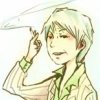
Fish and Chips - Posts: 4415
- Joined: Sat Dec 16, 2006 2:33 pm
- Location: Nowhere.
LOL It'd actually be pretty awesome to read some sort of parody with that writing style.
Fanfiction (updated 1/1/11)-- Lucky Star--Ginsaki ch. 4
[color="Magenta"]Sometimes I post things.[/color]



[color="Magenta"]Sometimes I post things.[/color]



-

LadyRushia - Posts: 3075
- Joined: Mon Aug 06, 2007 8:38 pm
- Location: In a dorm room/a house.
22 posts •
Page 1 of 1
Who is online
Users browsing this forum: No registered users and 66 guests


